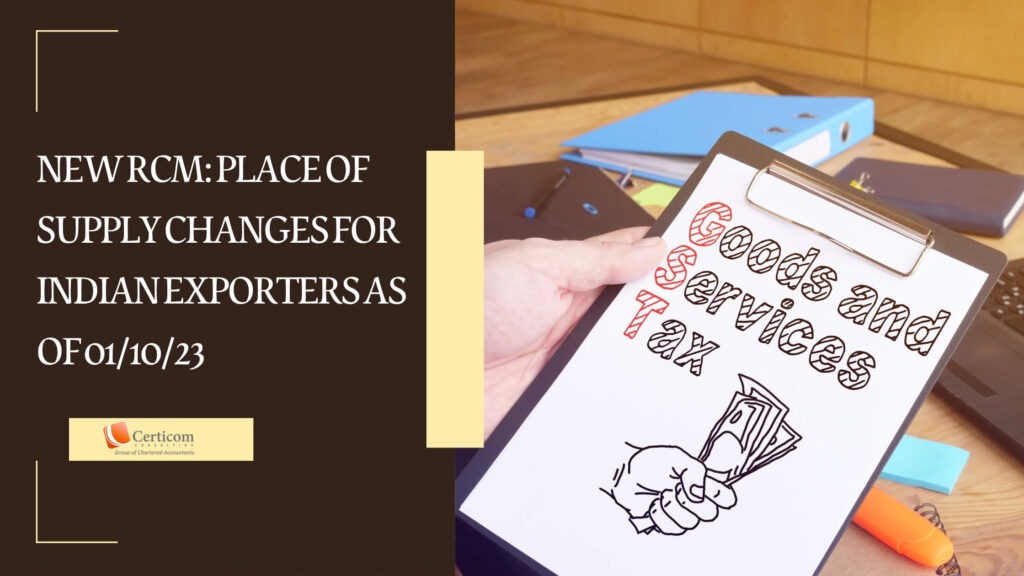NEW RCM: PLACE OF SUPPLY CHANGES FOR INDIAN EXPORTERS AS OF 01/10/23

Clarification on a number of matters pertaining to the Indian exporter’s place of supply as of 1/2010/23 Novel RCM Relevant: The Indian government implemented a new reverse charge mechanism (RCM) on October 1, 2023, which has a big effect on exporters from India. The adjustments have to do with where specific services are supplied in relation to the export of products and services.
Understanding the New RCM for Indian Exporters W.E.F. 01/10/23
Background
Changes were introduced by the Finance Act, 2023, dated March 31, 2023, and they became operative on October 1, 2023. The IGST Act, 2017’s Section 13 was the particular target of these modifications.
Change in the Place of Supply (POS)
The modification of the Place of Supply (POS) for services connected to the transportation of products is one of the major modifications brought about by these amendments. In the past, the commodities’ final destination served as the point of sale for these services. This has been changed, though, and according to Section 13(2) of the IGST Act, the new POS is “the location of the recipient of services.”
Section 13(2) reads as follows:
“13(2) The place of supply of services except the services specified in sub-sections (3) to (13) shall be the location of the recipient of services:
Provided that where the location of the recipient of services is not available in the regular course of business, the place of supply shall be the location of the supplier of services.”

Implications for Indian Exporters
The place of supply will now be identified as the location of the Indian exporter for exporters who ship their goods through international shipping lines due to changes in the POS regulations. Reverse Charge Mechanism (RCM) will therefore be used for these transactions.
RCM Application
Indian exporters would be liable for paying the relevant Integrated Goods and Services Tax (IGST) on these transactions due to the implementation of RCM. The applicable tax legislation shall be followed for determining the IGST rate and the particular requirements for application.
Additional Considerations
Ads and co-location services are among the other services covered by the new RCM in addition to the modifications made to the POS for transportation services. Indian exporters must make sure they are complying with the new laws and be informed of these changes.
Conditional IGST Exemption for Vessels
When foreign flag vessels change to coastal run, the GST Council has suggested a conditional IGST exemption, provided that they return to foreign going status within six months.
Related Post
Tax Implications of ESOPs and RSUs for Employees
ITR Filing Deadline Extended: New Last Date is September 15
Book A One To One Consultation Now For FREE
How can we help? *




